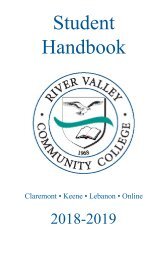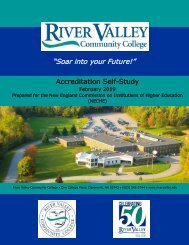Create successful ePaper yourself
Turn your PDF publications into a flip-book with our unique Google optimized e-Paper software.
other auditor. We conducted our audits in accordance with U.S. generally accepted auditing standards.<br />
Those standards require that we plan and perform the audit to obtain reasonable assurance about<br />
whether the financial statements are free from material misstatement.<br />
An audit involves performing procedures to obtain audit evidence about the amounts and disclosures in<br />
the financial statements. The procedures selected depend on the auditor's judgment, including the<br />
assessment of the risks of material misstatement of the financial statements, whether due to fraud or<br />
error. In making those risk assessments, the auditor considers internal control relevant to the entity's<br />
preparation and fair presentation of the financial statements in order to design audit procedures that are<br />
appropriate in the circumstances, but not for the purpose of expressing an opinion on the effectiveness<br />
of the entity's internal control. Accordingly, we express no such opinion. An audit also includes evaluating<br />
the appropriateness of accounting policies used and the reasonableness of significant accounting<br />
estimates made by management, as well as evaluating the overall presentation of the financial<br />
statements.<br />
We believe that the audit evidence we have obtained is sufficient and appropriate to provide a basis for<br />
our audit opinions.<br />
Opinions<br />
In our opinion, based on our audits and the reports of the other auditor, the financial statements referred<br />
to above present fairly, in all material respects, the financial position of the business-type activities and<br />
the discretely-presented component unit of CCSNH as of June 30, 2018 and 2017, and the respective<br />
changes in financial position and, where applicable, cash flows thereof for the years then ended, in<br />
accordance with U.S. generally accepted accounting principles.<br />
Other Matters<br />
Required Supplementary Information<br />
U.S. generally accepted accounting principles require that Management's Discussion and Analysis on pages 3<br />
through 25 and the required supplementary information on pages 60 through 65 be presented to supplement<br />
the basic financial statements. Such information, although not part of the basic financial statements, is required<br />
by the Governmental Accounting Standards Board (GASB), who considers it to be an essential part of financial<br />
reporting for placing the basic financial statements in an appropriate operational, economic, or historical<br />
context. We have applied certain limited procedures to the required supplementary information, in accordance<br />
with U.S. generally accepted auditing standards, which consisted of inquiries of management about the methods<br />
of preparing the information and comparing the information for consistency with management's responses to<br />
our inquiries, the basic financial statements, and other knowledge we obtained during our audit of the basic<br />
financial statements. We do not express an opinion or provide any assurance on the information because the<br />
limited procedures do not provide us with sufficient evidence to express an opinion or provide any assurance.<br />
Change in Accounting Principle<br />
As discussed in Note 2 to the basic financial statements, in 2018 CCSNH adopted new accounting guidance, GASB<br />
Statement No. 75, Accounting and Financial Reporting for Postemployment Benefits other than Pensions. Our<br />
opinion is not modified with respect to this matter.<br />
176 | P a g e





